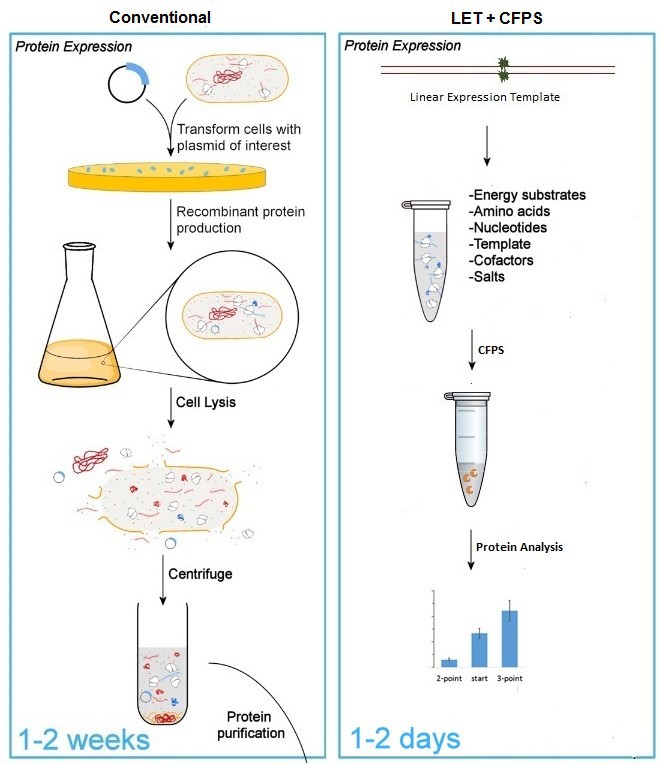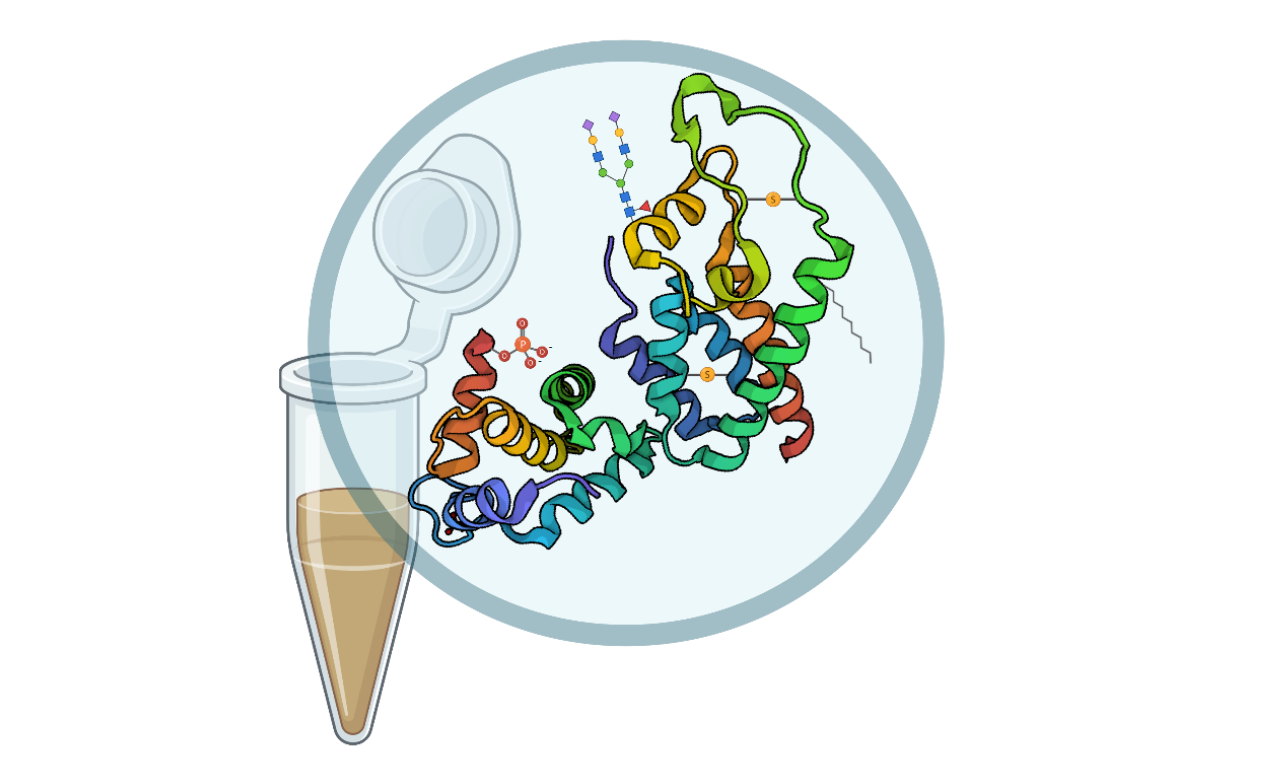Found 2 results
Article
18 December 2023Time-efficient and Semi-automated Production and Screening of Proteins
Fast, flexible and non-randomized modification, production and screening of proteins in fully automated system are of high interest in biological research and applications. The conventional methods for protein engineering and screening, especially for mutations of multiple residues. are time consuming and often unreliable. We demonstrate here a new, fast and flexible protein production and screening method which combines linear expression template (LET) based cell free protein synthesis (CFPS) with specific screening methods. This approach is demonstrated using green fluorescence protein, phosphoserine aminotransferase (serC) and aspartokinase III (AKIII) as model systems. The results show that mutants with changes in different protein properties upon multiple point mutations can be produced and screened within 6 to 15 h. This method can be used further to generate mutants of enzymes and multi-enzyme complexes and be implemented within the workflow of a feedback-guided protein optimization and screening system.

Review
28 July 2023Challenging Post-translational Modifications in the Cell-free Protein Synthesis System
Post-translational modifications (PTMs) represent a cornerstone in the complexity of the proteome, significantly contributing to diversifying protein structure and function. PTMs can considerably influence protein function, stability, localization, and interactions with other molecules. Therefore, it is important when choosing a protein expression system to ensure the precise incorporation of PTMs during protein synthesis, which is paramount for producing biologically active proteins. The cell-free protein synthesis (CFPS) system has emerged as a powerful protein synthesis platform and research toolkit in synthetic biology. The open nature of the system allows the reaction environment to be tailored to any protein of interest to promote specific PTMs, thus allowing for the production of a protein with desired modifications. This review presents various PTMs achieved in the CFPS systems, providing insights into current challenges, successes, and future prospects.
